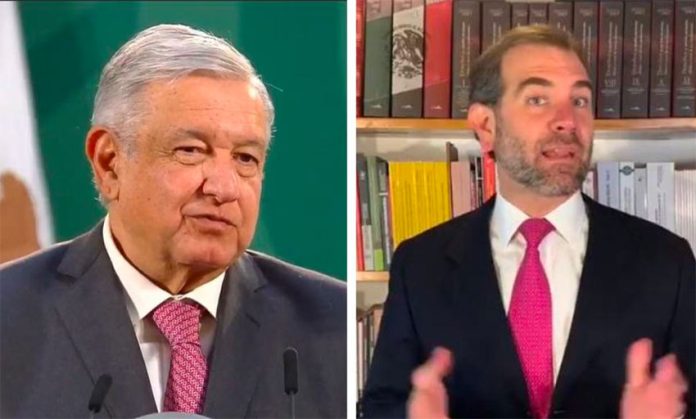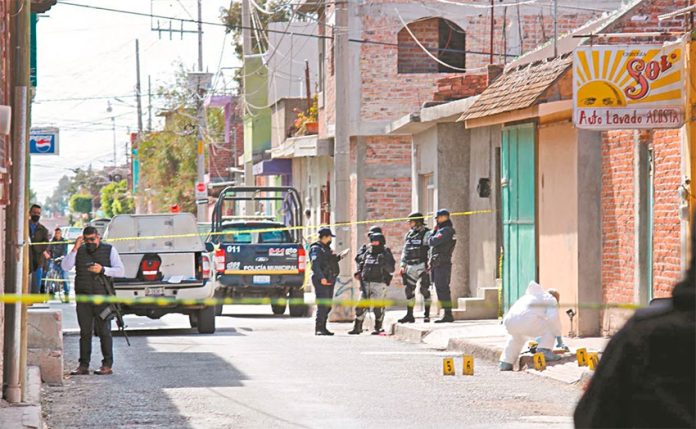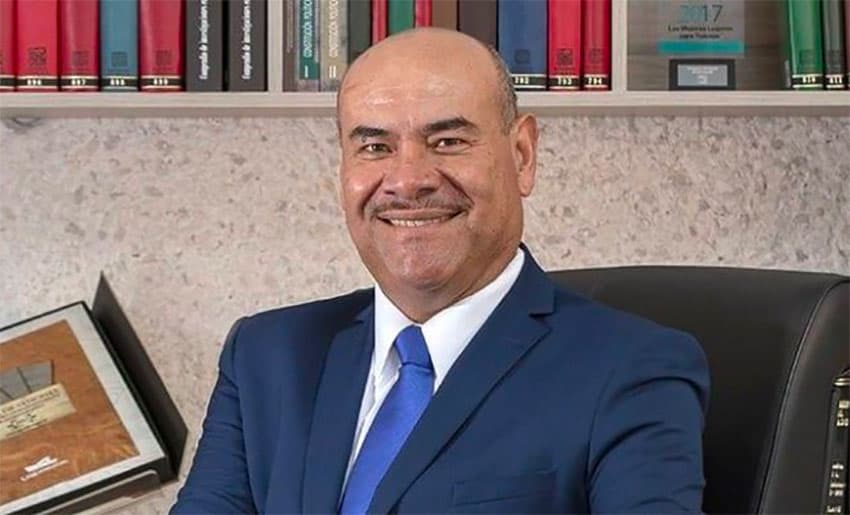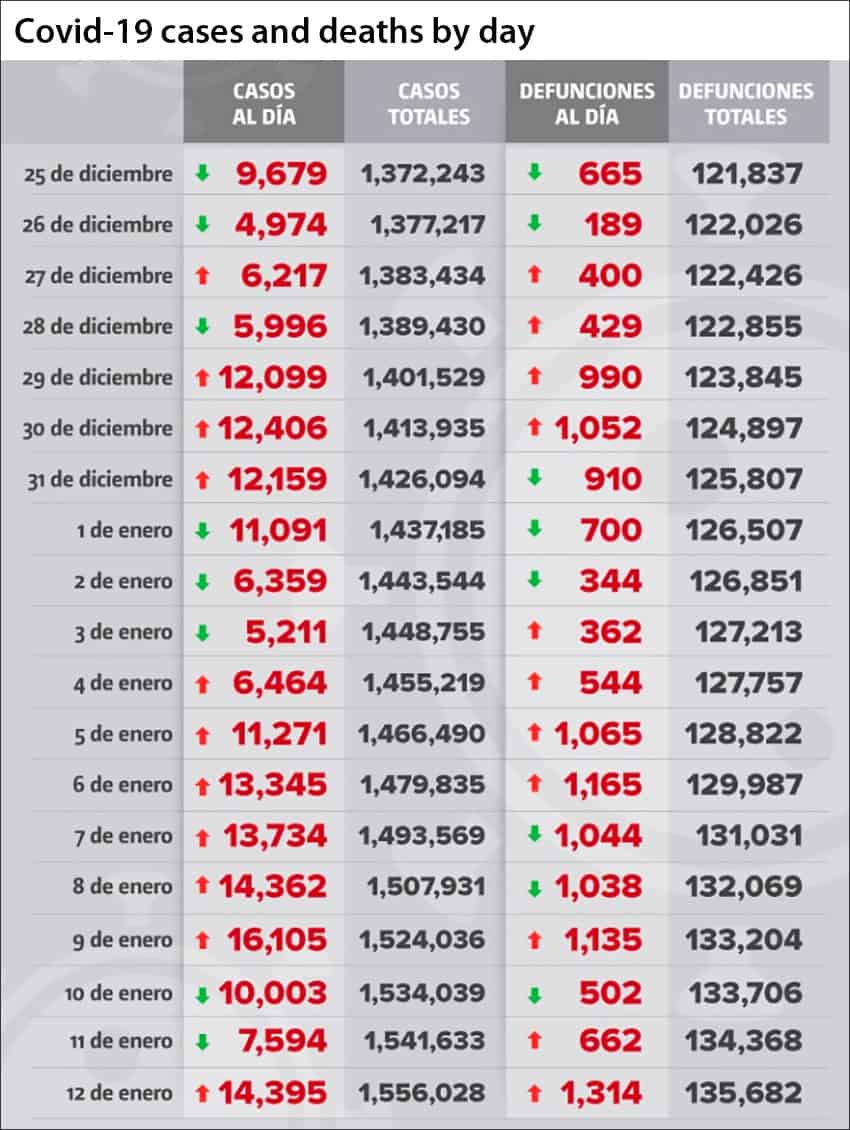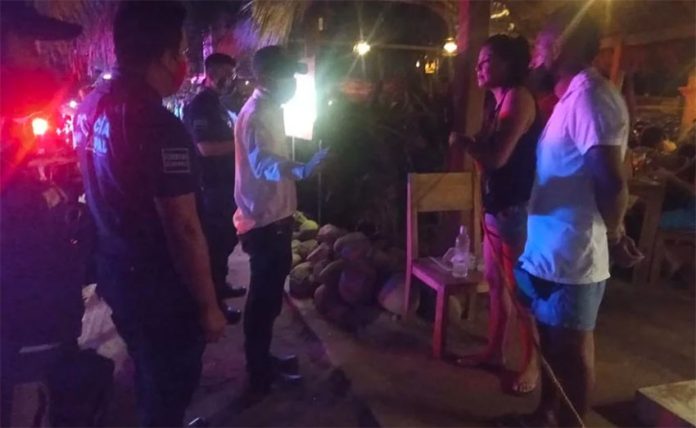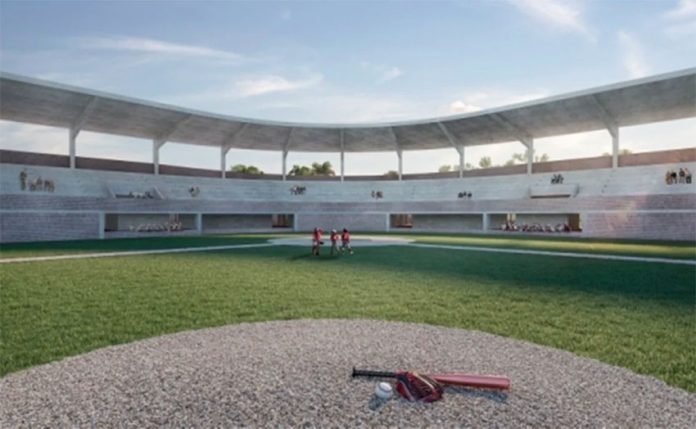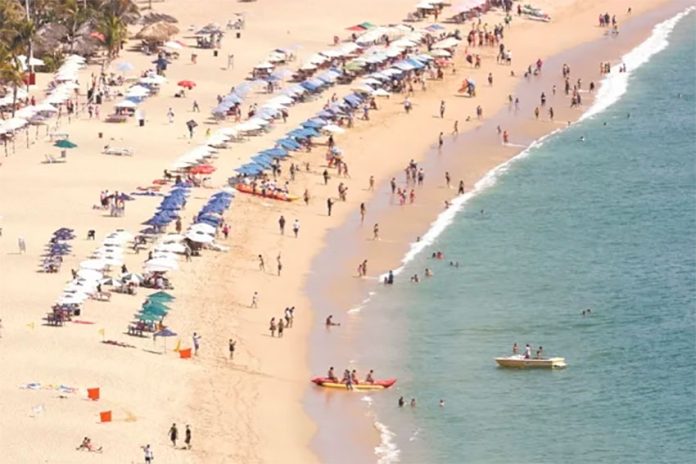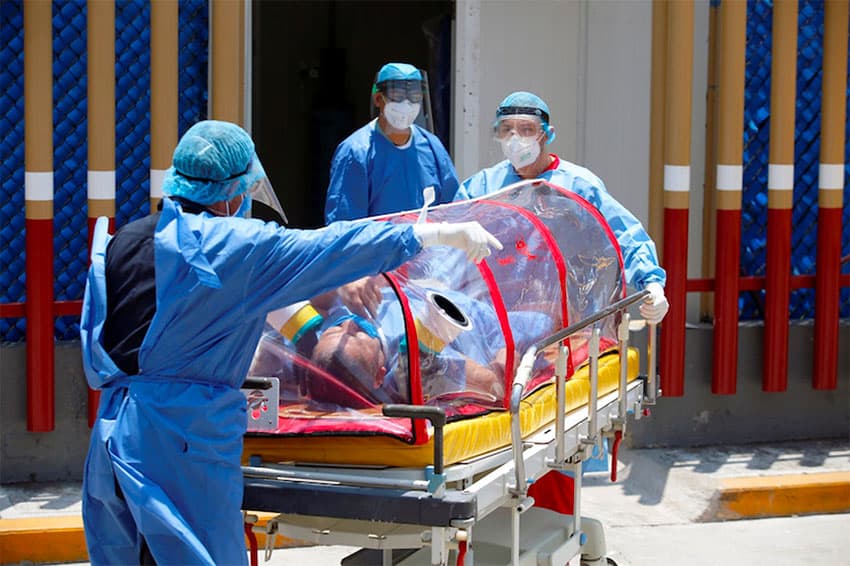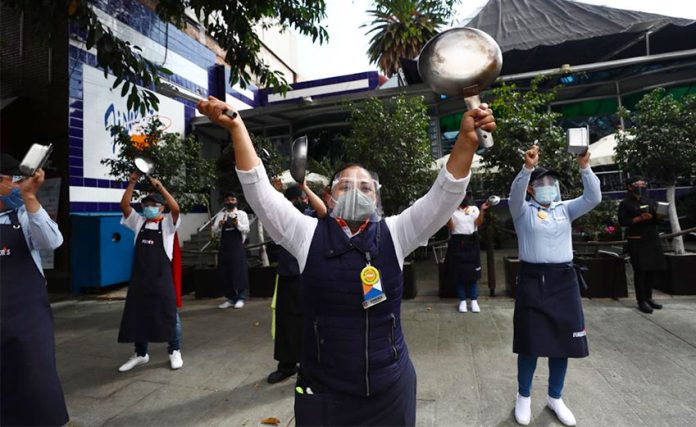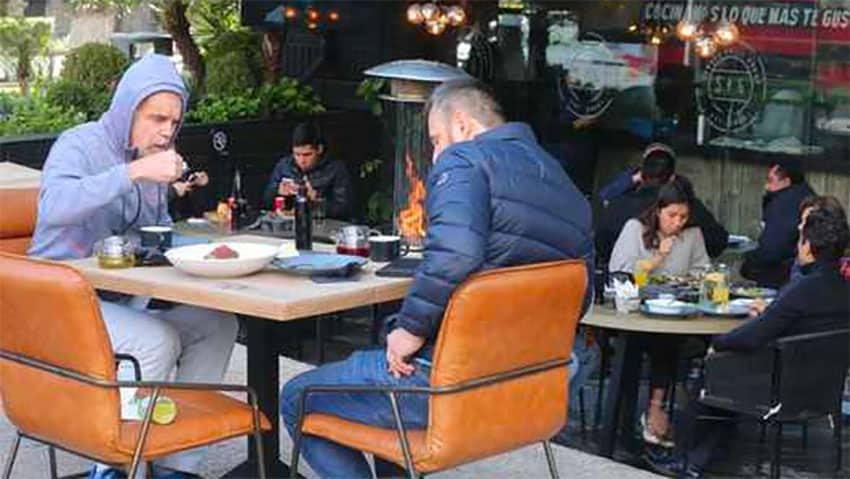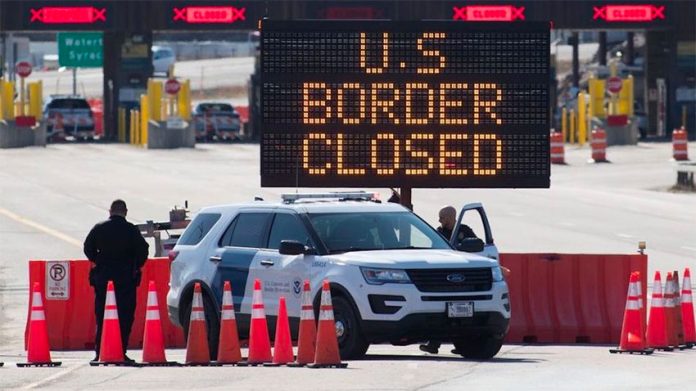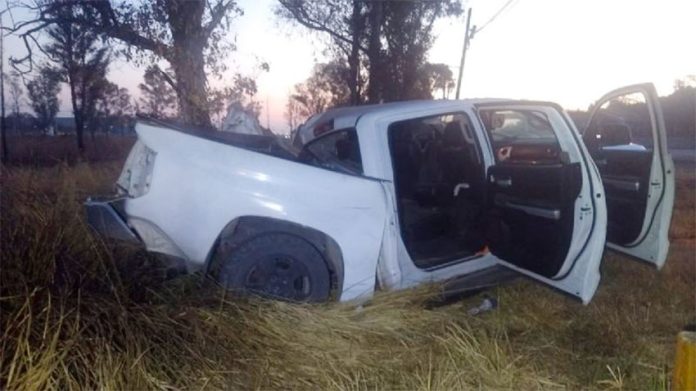A battle is brewing between the federal government and the National Electoral Institute (INE) over a possible ban on the transmission of President López Obrador’s daily press conferences during the lead-up to elections in June.
INE president Lorenzo Córdova said Monday that the broadcast of López Obrador’s morning pressers, known colloquially as mañaneras, must be suspended from April 4 because they constitute government propaganda.
But the president may continue holding his press conferences in the lead-up to state and federal elections on June 6, he said.
“Nobody has proposed suspending or canceling them,” Córdova said.
However, transmission of the conferences – which López Obrador uses to attack opponents as well as tout government programs and policies – must be suspended because the president uses them to promote the achievements of his administration, the INE chief said.
“They constitute government propaganda whose dissemination is prohibited during [election] campaigns by our constitution,” he said.
Córdova noted that the INE applied the law in the lead-up to previous elections and that governments and the media abided by it. He insisted that it is not an attempt to censor or silence the president.
“Freedom of speech prevails in Mexico … but conditions of equity and legality in political competition must also be maintained,” Córdova said.
“The INE will preserve them in accordance with its constitutional responsibilities, just as happened in 2018 [the year of the most recent presidential election], 2019 and 2020. And it will guarantee that citizens can freely vote this year, that their votes are respected and that the conditions of equity are maintained so that we once again have fully democratic elections,” he said.
(The entire lower house of federal Congress will be renewed on June 6 and voters will choose new governors in 15 states and new lawmakers in 30.)
INE councilor Ciro Murayama also spoke out in favor of suspending transmission of the president’s press conferences, which are broadcast on López Obrador’s personal social media accounts, including his popular YouTube channel, as well as government accounts and by media outlets.
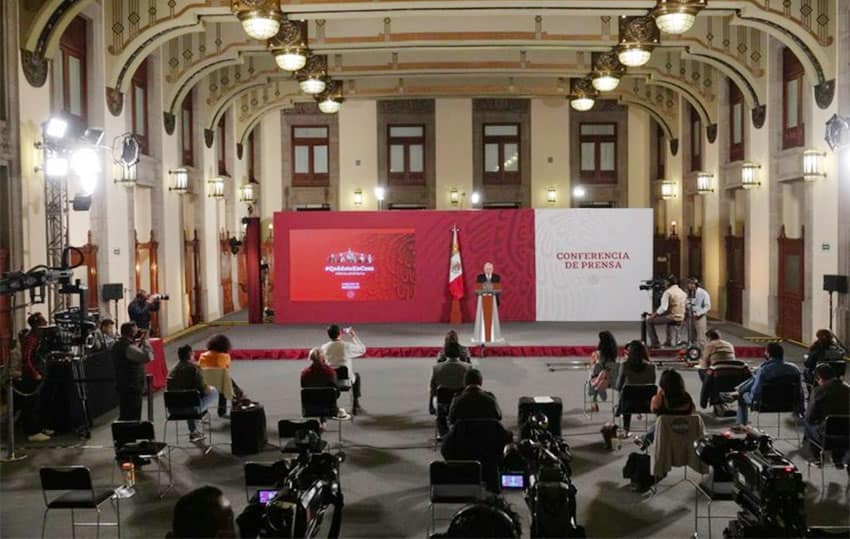
“#NoEsCensura [It’s not censorship]. The constitution orders the suspension of all government propaganda during election campaigns. The exception: health, education and civil protection issues. In this way the constitution protects the right to information and avoids government interference in elections,” Murayama wrote on Twitter.
López Obrador takes a very different view, which he outlined at his mañanera on Tuesday.
“Yesterday it was announced that the INE president is proposing the cancellation of the transmission of [press] conferences during two months. As censorship is now in fashion at a global level, they want to silence us,” the president said, apparently referring to the recent suspension of United States President Donald Trump’s social media accounts, which he criticized.
“It really is an attitude of great intolerance. How can they take away the right to freedom of speech? … How can they take away people’s right to information?”
López Obrador told reporters that his government would launch legal action if the INE goes ahead with the plan.
“It would be an act of censorship, an affront, an attack on freedom; this [plan] cannot succeed from a constitutional point of view, from a legal point of view,” he said.
AMLO, as the president is best known, called on Mexicans to express their opinion on whether the INE’s plan is a good idea.
“Is it OK in Mexico, in our country, that the president can’t speak, can’t inform?” he asked.
López Obrador asserted that Córdova shouldn’t be concerned about the transmission of his press conferences during the campaign period because his administration is different from the corrupt governments of the past and wouldn’t seek to use them for electoral gain.
“We’re not the same, we come from a struggle in which we always faced anti-democratic practices that he [Córdova] endorsed, … he always turned a blind eye to electoral frauds, to violations of the law,” AMLO said.
(Córdova has been at the helm of the INE since 2014, overseeing the 2015 midterm federal election at which the president’s Morena party finished a distant fourth.)
López Obrador asserted that he wouldn’t allow the government to use public money to promote itself in the lead-up to the election, which he claimed happened in the past without any opposition from the INE chief.
“We have principles, ideals, we’re not going to do anything that affects democracy. On the contrary, we’re going to promote it. What does that mean in practice? … The government won’t … [interfere] in the electoral process [and] won’t use the government budget” to boost its electoral prospects, he said.
Following his remarks, some opposition lawmakers called on the president not to distort information, asserting that his claim that the INE is trying to silence him is false.
Verónica Juárez, leader of the Democratic Revolution Party in the lower house of Congress, and National Action Party Senator Juan Antonio Martín del Campo said that the INE’s intention is simply to ensure a level playing field for the various political parties.
Juárez said that López Obrador uses his pressers to promote the government and attack his opponents and to do so in a broadcast from the presidential lectern during the campaign period would be illegal.
Martín expressed his support for the possible ban and affirmed that at no time have electoral authorities said their aim is to silence the president and his government.
For his part, Deputy Raúl Eduardo Bonifaz of the ruling Morena party said that Córdova’s intention is misguided because the president uses them to inform the public about government actions – López Obrador said this week that the national transparency watchdog is not needed because his administration maintains “permanent communication” with citizens – and not for promotional purposes.
“We’re in a health emergency and the people must be informed. The INE is violating … the constitution and making a very serious mistake.“
Source: Reforma (sp)
